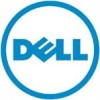Dell External OEMR 1435 User Guide - Page 146
Abbreviation for Red Hat Package Manager.
 |
View all Dell External OEMR 1435 manuals
Add to My Manuals
Save this manual to your list of manuals |
Page 146 highlights
read-only file A read-only file is one that you are prohibited from editing or deleting. A file can have read-only status if: • Its read-only attribute is enabled. • It resides on a physically write-protected diskette or on a diskette in a writeprotected drive. • It is located on a network in a directory to which the system administrator has assigned read-only rights to you. readme file A text file included with a software package or hardware product that contains information supplementing or updating the documentation for the software or hardware. Typically, readme files provide installation information, describe new product enhancements or corrections that have not yet been documented, and list known problems or other things you need to be aware of as you use the software or hardware. ROM Acronym for read-only memory. Your system contains some programs essential to its operation in ROM code. Unlike RAM, a ROM chip retains its contents even after you turn off your system. Examples of code in ROM include the program that initiates your system's boot routine and the POST. RPM Abbreviation for Red Hat Package Manager. schema A collection of class definitions that describes managed objects in a particular environment. A CIM schema is a collection of class definitions used to represent managed objects that are common to every management environment, which is why CIM is called the Common Information Model. SCSI Acronym for small computer system interface. An I/O bus interface with faster data transmission rates than standard ports. You can connect up to seven devices (15 for some newer SCSI types) to one SCSI interface. 146 Glossary















